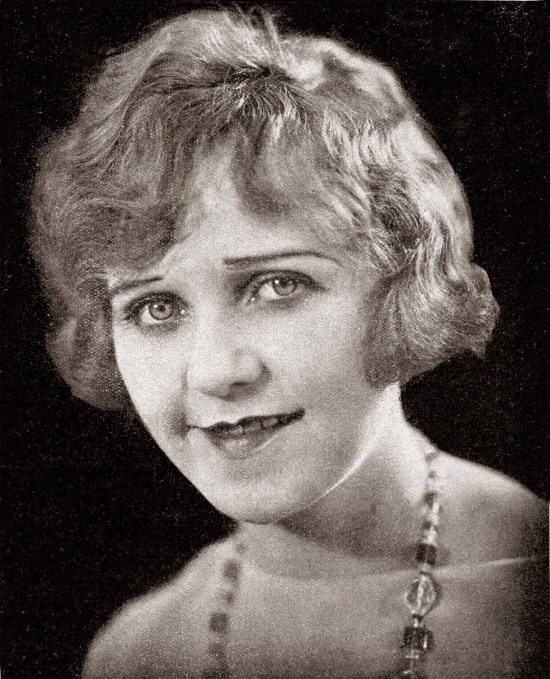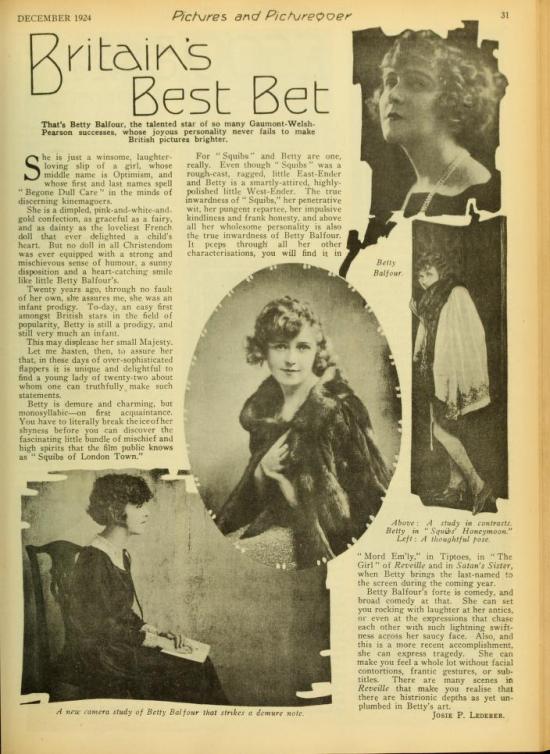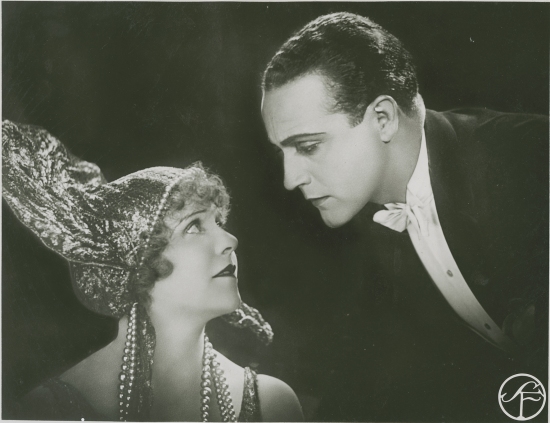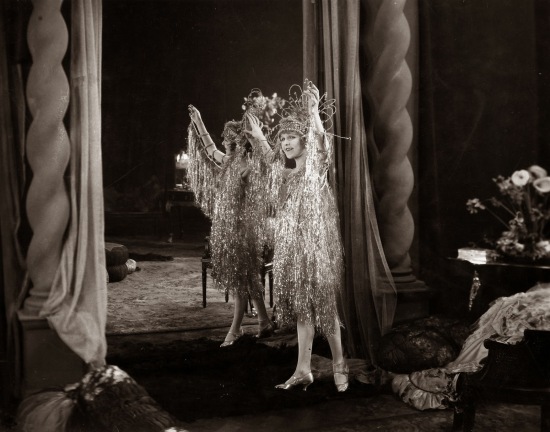
Betty Balfour
Betty Balfour could well be the mascot of the 19th British Silent Film Festival. You will see her in three different films across the weekend – two silents and a musical. In each film, you’ll get a glimpse of why she was once one of the most popular British film stars. In her heyday, she was occasionally compared to Hollywood’s Mary Pickford, but her appeal was not quite so girlish and innocent. Balfour was first and foremost a comedienne, with an earthy, active charm that she deployed to great effect playing the Cockney flowergirl ‘Squibs’ in a series of hit films. Later in her career, she played more sophisticated characters in more serious films, but the Balfour charm still shines through.
Balfour was not a Cockney herself, although she was raised in London. As a profile on Balfour in Picturegoer in 1924 wrote, “‘Squibs’ was a rough-cast, ragged, little East-Ender and Betty is a smartly-attired, highly-polished little West-Ender.” In fact, when Balfour had introduced herself to the readers of that magazine in 1921, in an article entitled ‘Mainly about me’, she stressed her aristocratic connections. The patronage of the “late lady FitzGeorge” was responsible for her big break, she explained, her first stage job at the Ambassadors’ Theatre in 1914, when she was just 12 years old. As a younger child she had performed songs and recited speeches at “At-homes” to an audience comprising “crowned heads, princes, duchesses; men who had helped to make empires, and men who were planning to wreck them”.

She started out in pictures in 1920, under the guidance of producer George Pearson, who had seen her perform on stage – he directed her in the Squibs films, which made her a star almost overnight. In several of Balfour’s best-loved films, she follows a rags-to-riches path – these roles make the most of both her down-to-earth appeal, but also her blonde beauty, dressed up in glamorous gowns. In Paradise (1928, screening at the festival on Sunday 17 September), Balfour plays a humble clergyman’s daughter, who takes a holiday to the ritzy French Riviera when she comes into money.

A Sister of Six (1927)
Balfour never made the leap from the British film industry to Hollywood, despite American fan magazines hailing her as “Great Britain’s queen of happiness”. She did, however, make several films in Europe. On Saturday 16 September we’re showing A Sister of Six, a recently rediscovered 1926 German-Swedish-UK co-production. In this sparkling comedy, Balfour plays opposite Willy Fritsch as a young girl in love with an Arch-Duke, and jumping through a multitude of hoops on the path to romantic bliss. Her wardrobe is spectacular in this film and at one point she even turns up in drag.
From 1931 to 1941, Balfour was married to successful composer, Jimmy Campbell, whose long-term partnership with Reg Connolly under the pseudonym Irving King, produced such diverse classics as ‘Goodnight Sweetheart’, ‘Show me the Way to Go Home’, and ‘Try a Little Tenderness’. Balfour sang very well and had a brief recording career, as well as appearing in musicals in the 1930s. On Thursday, 14 September, we’re showing Raise the Roof, a 1930 musical directed by Walter Summers in which Balfour plays alongside Jack Raine and Maurice Evans as the star of a touring revue company.

If you find yourself bitten by the Balfour bug after these three, you’ll want to see more of her films. We recommend her star turn as a spoiled heiress in Hitchcock’s Champagne (1928), and look out for Love, Life and Laughter (George Pearson, 1923), which was long thought to be lost but was recently unearthed and is currently being restored.
Balfour made her last appearance on film in 1945 and died, with her days of stardom long behind her, in the late 70s. These days, the woman Rachael Low praised for “being able to register on screen a charm and expression unequalled among the actresses in British film” is little known, but this year in Leicester we hope she will pick up some new admirers.
Reblogged this on ithankyouarthur and commented:
Looking forward to some Betty B in Leicester!
LikeLiked by 1 person
Pingback: Raising the roof: how British cinema made the leap to sound « British Silent Film Festival
Bright, bubbly and Britalicious! Love our Betty. See you all in Leicester.
LikeLike
Pingback: Are you ready for the 19th British Silent Film Festival? | Silent London
Pingback: The best of everything at the 19th British Silent Film Festival | Silent London
Pingback: Breaking Betty Balfour news: Love, Life and Laughter (1923) at the LFF | Silent London